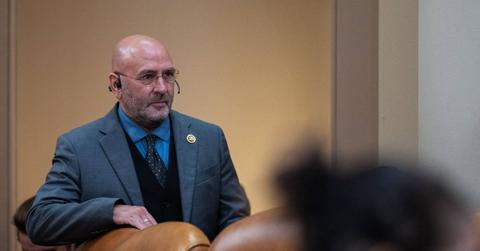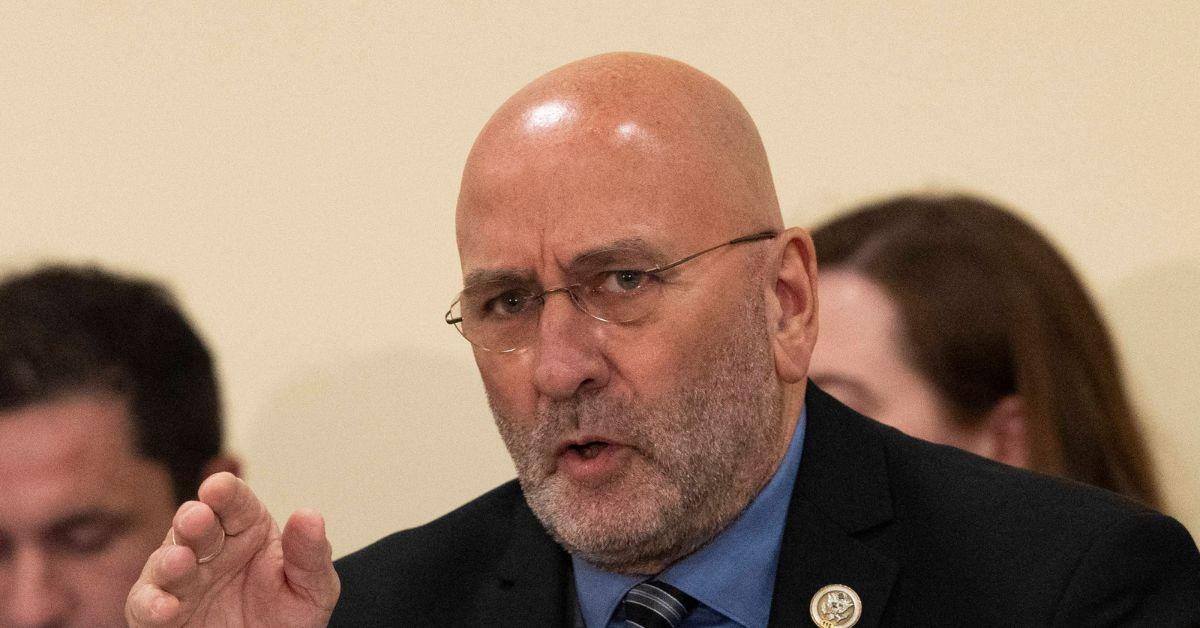Clay Higgins Says He Voted No on the Epstein Files Because of a Belief in Privacy
Clay Higgins was concerned about the privacy of those in the files.
Published Nov. 19 2025, 9:54 a.m. ET

Although for a long time it was unclear whether a vote on releasing the Epstein files would even happen, once it got to the floor of the House of Representatives, it was passed almost unanimously. Only one representative voted no, and now, many want to better understand what motivated him to take such an unpopular position.
Rep. Clay Higgins, a Republican from Louisiana, was the only member of Congress to vote against releasing the Epstein files, even as many suspect that the files might contain some incriminating information about Donald Trump. Here's what we know about why he made that decision.

Why did Clay Higgins vote no on releasing the Epstein files?
In a post on X (formerly known as Twitter), Higgins said that he opposed the release of the files on privacy grounds.
“It abandons 250 years of criminal justice procedure in America,” he wrote. “As written, this bill reveals and injures thousands of innocent people — witnesses, people who provided alibis, family members, etc. If enacted in its current form, this type of broad reveal of criminal investigative files, released to a rabid media, will absolutely result in innocent people being hurt.”
The bill was passed by a vote of 427 to one, and 216 Republicans ultimately voted for the measure. This came days after Trump himself posted on Truth Social that the bill should pass, even though the White House has been advocating against the release of the files for months.
While Trump didn't explain his change in posture, many believe he urged the bill's passage after it became clear it was going to pass anyway.
Higgins also said that he might vote for the bill if it were amended in the Senate.
“If the Senate amends the bill to properly address privacy of victims and other Americans, who are named but not criminally implicated, then I will vote for that bill when it comes back to the House,” he explained. The bill was not amended in the Senate, though, and was instead passed by unanimous consent, and is now headed to the president's desk.
“I talked with the speaker a bit, and we’ve been in consultation obviously with the White House on this for some time,” Senate Majority Leader John Thune told reporters, explaining why the bill passed the Senate through unanimous consent, per Politico. “The conclusion was when it came out of the House 427-1 that, you know, it was going to pass in the Senate.”
It's worth noting, though, that the president could release the files of his own volition without a bill from Congress. The bill was designed as a workaround to force the president's hand, but he could have released them without Congressional approval at any time over the past few months. Now that the bill is headed to his desk, we'll see whether the files actually get released, and whether there's anything that justifies all the attention that's been drawn to them.